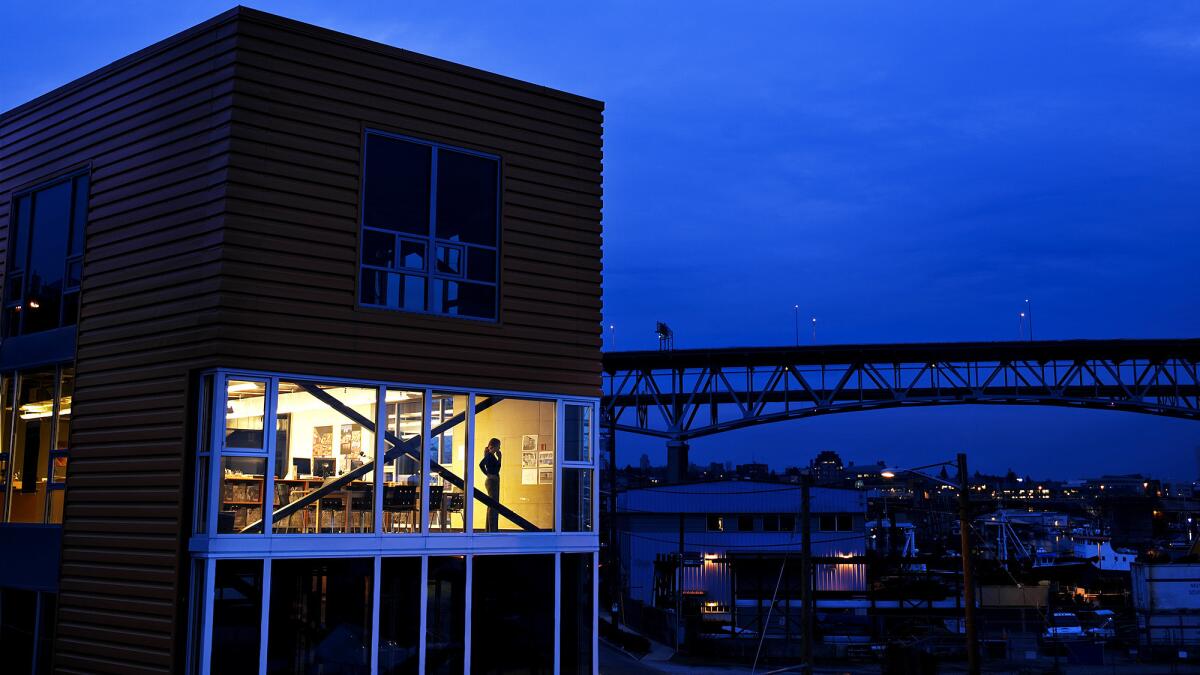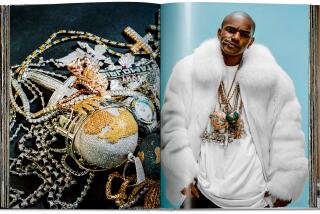How ‘busyness’ became a bona fide status symbol

- Share via
It’s the most hyper-busy time of the year. Holiday shopping, hosting and travel preparations. Year-end financial moves. A mountain of work to finish before vacation. For once, the all too common “I’m just so busy” gripe feels like a legitimate complaint.
But most of the year, it has taken on the feel of an overused humblebrag, a self-deprecating yet showy effort to tout one’s own importance, value and desirability at work or among friends. In our information-drenched, 24/7 work workplaces, where time for leisure has become an even scarcer commodity for many professionals than money to buy luxury goods, being “so busy” seems to be a badge of honor, a status symbol in our always-on world.
Now researchers from Columbia, Georgetown and Harvard universities say that’s exactly what it is, with “busyness” replacing conspicuous consumption as a public marker for our worth. In a recent Harvard Business Review article, based on a forthcoming paper in the Journal of Consumer Research, the trio argue that “busyness” is an actual way people signal their importance — and that marketers are responding to it.
They found that participants thought of people who were described as working longer hours as having higher status. They also tended to put brands or products that offer convenience or multi-tasking on a level with those known simply for being expensive.
“Luxury goods are losing signaling value” as more people can afford them, said Silvia Bellezza, a professor of marketing at Columbia University who co-authored the paper. Talking about a scarcity of time is “a more nuanced way to display [importance] that doesn’t go through conspicuous consumption. It’s implicitly telling you that ‘I am very important, and my human capital is sought after, which is why I’m so busy.’ ”
Bellezza’s research conducted several studies to see how “busyness” influences status. In a series of experiments, she and her colleagues asked respondents to rate the social status of a person described as working long hours at work versus one who has a more leisurely lifestyle. Again and again, participants rated the person who worked more as having more social status, even when the person the researchers asked about was thought to work slowly. In other words, getting the work done fast and having more time for leisure was not something associated with prestige.
That tendency to see people who work many hours as more prominent is something that likely influences how many managers see their people. Bellezza says managers should “shift as much as possible their attention to what people are producing, rather than how long they’re in the office.” But that rarely happens: Her boss told her all he wanted was results — “but then it wasn’t true,” with him telling her “the junior shouldn’t leave before the boss.”
The study also found that brands associated with helping people deal with their busyness can also take on higher status. They compared what more than 450 respondents thought about a middle-aged consumer who shopped at an online grocery service like Peapod, the high-end grocery store Whole Foods, or a middle-of-the-road store like Trader Joe’s. Both Whole Foods and Peapod were seen as having more status than Trader Joe’s.
“Shopping online conveys that the person doesn’t have time to shop, and that operates as a signal of status,” Bellezza said. Likewise, in another experiment, people wearing a Bluetooth headset, which acts as a display of professional multi-tasking, were seen as higher-status than those wearing traditional headphones, which are more associated with leisure time.
Some brands have already tried to use that dynamic in their advertising. Bellezza points to a Cadillac ad from 2014 starring actor Neal McDonough that touted American achievement and hard work, even finishing with “as for all the stuff, that’s the upside of only taking two weeks off in August.” She believes we’re likely to see even more ads “where you see these products that have nothing to do with [being busy], but they’re implicitly telling people they’re important because their time is scarce.”
Of course, the more people brag about how busy they are, the more common it becomes, and as that happens, particularly in workaholic cultures, status symbols, just like fashions, are likely to change, Bellezza says. “For signals of status to operate, they need to be visible and they need to be costly,” she says. “And visibility is compromised if everyone else is doing it too.”
Jena McGregor writes a column analyzing leadership in the news for the Washington Post.
More to Read
Inside the business of entertainment
The Wide Shot brings you news, analysis and insights on everything from streaming wars to production — and what it all means for the future.
You may occasionally receive promotional content from the Los Angeles Times.










